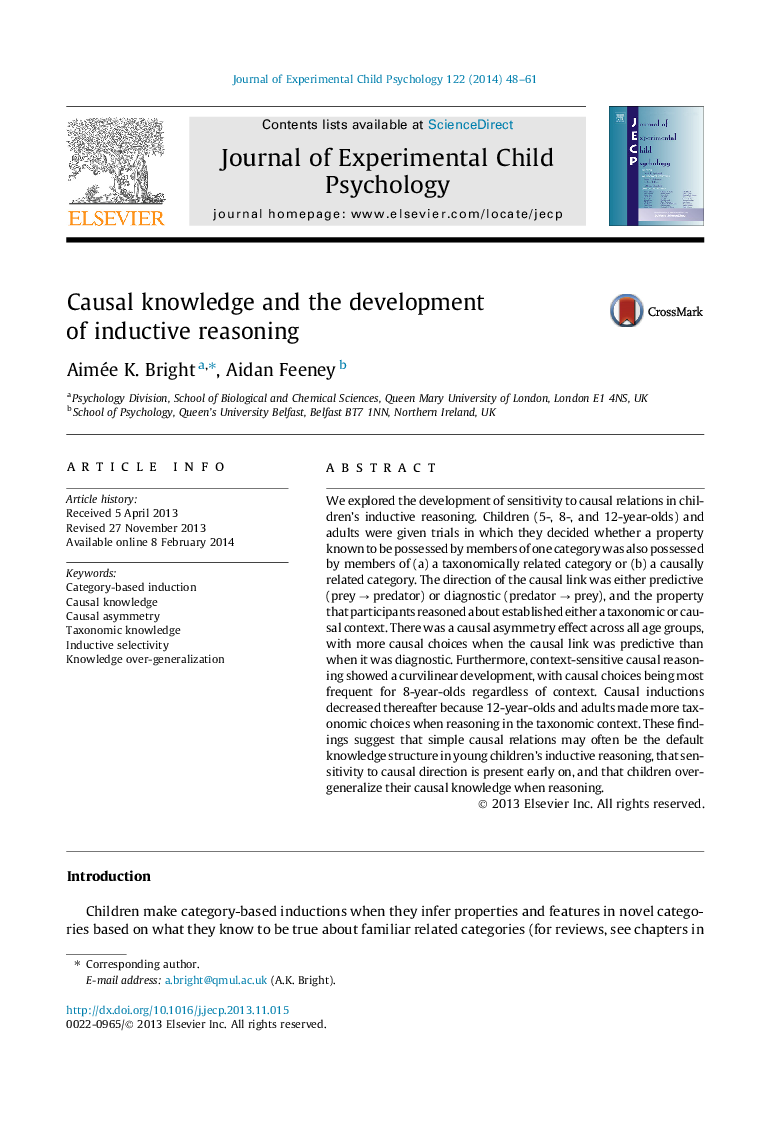| کد مقاله | کد نشریه | سال انتشار | مقاله انگلیسی | نسخه تمام متن |
|---|---|---|---|---|
| 7275575 | 1473490 | 2014 | 14 صفحه PDF | دانلود رایگان |
عنوان انگلیسی مقاله ISI
Causal knowledge and the development of inductive reasoning
ترجمه فارسی عنوان
دانش علمی و توسعه استدلال استقرایی
دانلود مقاله + سفارش ترجمه
دانلود مقاله ISI انگلیسی
رایگان برای ایرانیان
کلمات کلیدی
القاء مبتنی بر رده، دانش علمی، عدم تقارن علمی، دانش تاکانیومی، انتخابی القایی، بیش از حد تعلیم دانش،
موضوعات مرتبط
علوم انسانی و اجتماعی
روانشناسی
روانشناسی رشد و آموزشی
چکیده انگلیسی
We explored the development of sensitivity to causal relations in children's inductive reasoning. Children (5-, 8-, and 12-year-olds) and adults were given trials in which they decided whether a property known to be possessed by members of one category was also possessed by members of (a) a taxonomically related category or (b) a causally related category. The direction of the causal link was either predictive (prey â predator) or diagnostic (predator â prey), and the property that participants reasoned about established either a taxonomic or causal context. There was a causal asymmetry effect across all age groups, with more causal choices when the causal link was predictive than when it was diagnostic. Furthermore, context-sensitive causal reasoning showed a curvilinear development, with causal choices being most frequent for 8-year-olds regardless of context. Causal inductions decreased thereafter because 12-year-olds and adults made more taxonomic choices when reasoning in the taxonomic context. These findings suggest that simple causal relations may often be the default knowledge structure in young children's inductive reasoning, that sensitivity to causal direction is present early on, and that children over-generalize their causal knowledge when reasoning.
ناشر
Database: Elsevier - ScienceDirect (ساینس دایرکت)
Journal: Journal of Experimental Child Psychology - Volume 122, June 2014, Pages 48-61
Journal: Journal of Experimental Child Psychology - Volume 122, June 2014, Pages 48-61
نویسندگان
Aimée K. Bright, Aidan Feeney,
